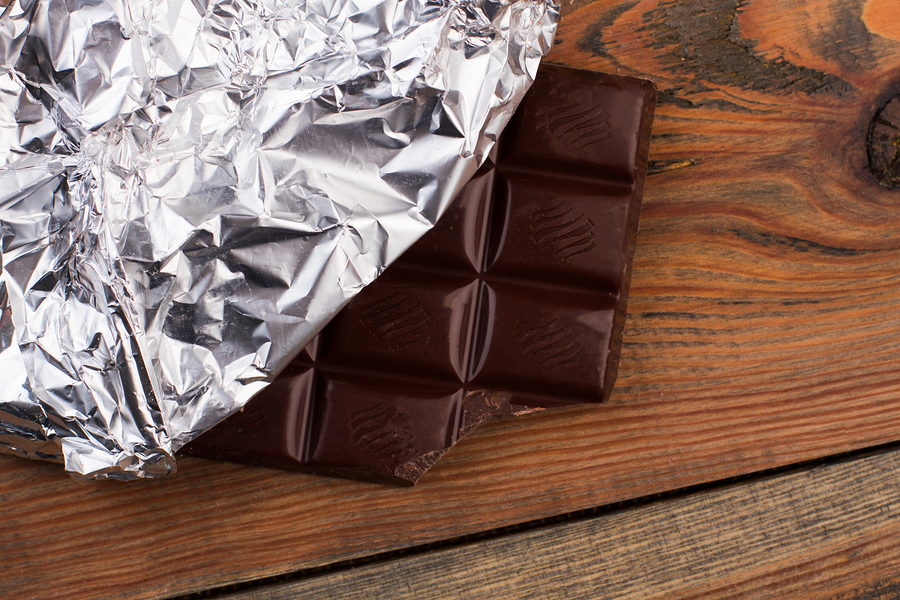Can chocolate really be good for us?
Good or bad? Naughty or nice? For years we’ve been told that chocolate should be placed in the same category as cakes, biscuits and sweets – not to be eaten and certainly not included as part of a healthy eating regime. But the tide seems to be turning…
Experts now tell us that small amounts of dark chocolate (a few squares or a small bar) if consumed alongside a healthy well-balanced diet can actually boost our health. Ceitanna Cooper, Associate Nutritionist at AXA PPP healthcare puts us in the picture.
Chocolate makes us feel good
There’s a reason why we give chocolates to the ones we love – its taste, texture and even its smell rouses the feel-good areas of our brains.
Chocolate contains an essential amino acid called tryptophan which stimulates the production of the brain’s natural anti-depressant, serotonin. Falling in love arouses feelings that are very similar.
Chocolate can help our hearts
Dark chocolate contains chemicals called flavonoids. “These flavonoids stimulate our bodies to make more nitric oxide which helps to relax and widen blood vessels which in turn may help to lower blood pressure,” says Ceitanna Cooper.
Eating dark chocolate can also thin the blood which reduces the risk of strokes and can also have an anti-inflammatory effect.
Chocolate helps to protect our arteries
Cocoa butter which is present in chocolate contains a type of saturated fat called stearic acid. This fat doesn’t raise cholesterol and may even increase levels of the protective (good) cholesterol. More than half of this fat is found in flavonoids.
So flavonoids found in dark chocolate also help to stop LDL (bad) cholesterol from oxidising which can help to prevent the furring up of arteries.
Chocolate can help with coughs
A chemical called theobromine, present in chocolate, has been shown to help with coughs. Theobromine is found to act on the vagus nerve which carries messages from the central nervous system to the brain and so suppresses the feeling of wanting to cough.
Chocolate and our brains
Epicatechin, which is a chemical found in cocoa and green tea may also be good for our brains. Epicatechin may help to protect the brain against sticky proteins or amyloid plaques which have been found to develop in people with Alzheimer’s disease.
Ceitanne tells us “eating too much sugar or fatty foods can lead to health problems but as we’ve seen, small amounts of chocolate can have some health benefits. So as long as chocolate is consumed as part of a well-balanced diet then we shouldn’t feel guilty about indulging every now and then.”
So what type of chocolate should we choose?
The rule of thumb is the darker the chocolate the better. A chocolate with a cocoa content of 70% and higher will contain more flavonoids.
Flavonoids can also be found in foods such as fruit, broccoli, onions and tea. They are also thought to protect against certain cancers as well as heart disease.
Ceitanna Cooper advises to always check the label: “there will be more flavonoids in a dark chocolate that lists cocoa beans, cacao, chocolate liquor or cocoa mass on its list of ingredients. However, be aware that milk chocolate tends to have very few flavonoids and white chocolate has none.”
Should we snack on dark chocolate?
A small bar of dark chocolate between meals will not cause a rapid rise in blood sugar levels as the fat contained within it slows down the absorption of sugar. It is classed as a ‘low GI’ food.
Be aware that if you are trying to reduce your caffeine intake then chocolate does contain caffeine and will therefore give a temporary boost to energy and concentration.
Read more for tips on how to go caffeine free.
So although chocolate is by no means a health food and shouldn’t be regarded as such, if eaten in small amounts, as part of a healthy balanced diet then it should not do you any harm.
Read more articles on how to eat a healthy balanced diet in our Silversurfers diet and exercise section.
Disclaimer
All content on Silversurfers.com is provided for general information only, and should not be treated at all as a substitute for the medical advice of your own doctor or any other health care professional. Silversurfers will not be responsible or liable for any diagnosis made by a user based on the content on www.silversurfers.com and we are also not liable for the content of any external websites or links from or to Silversurfers to any other websites. Please always consult your own doctor if you’re in any way concerned about any aspect of your health.
Melina - Assistant Editor
Latest posts by Melina - Assistant Editor (see all)
- By yourself at Christmas this year? Tips on how to manage alone - December 16, 2024
- The Silversurfers, just for fun, Christmas Quiz! - December 14, 2024
- 10 potential hazards for pets at Christmas - December 10, 2024
- Christmas Spiced Blueberry Panettones - December 1, 2024
- Three must have toys of the late 60’s - November 24, 2024




















